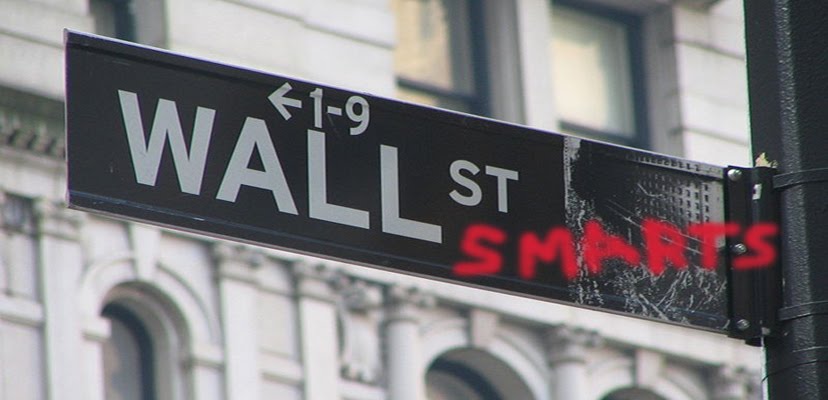WALL STREET SMARTS, THE BLOG, IS NOW WALL STREET SMARTS, THE BOOK. FULLY EDITED AND REVISED WITH NEW MATERIAL ON AMAZON
In his book, Irrational Exuberance, Professor Robert J. Shiller wrote that there is little difference between professional and individual investors. His analysis was as follows:
Some observers believe that professional investment managers are more sensible and work to offset the irrational exuberance of the non-professional investing public. Therefore these observers might argue that a sharp distinction should be drawn between the behavior of the professionals and the nonprofessionals. Professional investors, however, are not immune from the effects of the popular investing culture that we observe in individual investors, and many of the factors described here no doubt influence their thinking as well. There is in fact no clear distinction between professional institutional investors and individual investors, since the professionals routinely give advice to the individual investors.*
(Author's emphasis in bold)
For the amateur, the most powerful emotions are fear and greed. Bradbury K. Thurlow discusses the psychological forces preying on the individual investor in his book, Rediscovering the Wheel: Contrary Thinking & Investment Strategy. He described their impact on an individual as follows:
Let us begin with the oldest psychological market cliche of them all: "Price movements are motivated by greed and fear." Greed and fear, as most of us understand them, are intensely personal emotions; as they occur in the stock market they are social emotions. The two are similar, but do not operate in precisely the same manner. In the individual, fear and greed are both derived from the basic instinct of self-preservation. Fear in our present context is exclusively related to the loss of financial security; greed is the emotional desire to increase the security base to infinity to protect against possible future loss.
Thurlow then went on to describe the equivalent emotions in the professional investor as follows:
An investment manager's closest approach to fear is the uncertainty over whether he will lose an account; if he works in a large institution even this emotion will be attenuated to a more or less vague anxiety that he or his organization will perform much worse than the competition. The structural defense against this anxiety is to imitate the competition. For this reason institutional conformity tends to increase as speculative confidence decreases. One of the most painful of all present-day situations is to be proven wrong and know you stand alone.
Conversely, as speculative confidence increases, conformity diminishes and decision makers are more willing to use their imagination. Speculative success leads to alternating periods of anxiety -- grab the profit before the price falls -- and emulation -- we can take business away from them if we just take a little more risk. In the extreme maturity of the bullish cycle many institutions will have quite shed their timidity and will be emulating their peers by investing in increasingly "far out" concepts.**
He agreed with Professor Shiller that emotions can affect everyone on Wall Street and concluded his comparison of the professional and the amateur with the following:
A contrarian reading of the contradictions between investment professionals and amateurs would disclose that the former are so called because they are paid to serve the interests of the latter.
Finally, the professional, as a fellow investor, will be competing for profits in the same market and will constantly be working, against the amateur and against other professionals, to pursue every advantage. This, contrarily, gives the amateur a reasonable chance of success, if he can only learn to avoid the psychological mistakes to which all of us are equally subject.**
The individual investor/speculator will usually have contact with only one type of market professional, the stock broker who takes buy and sell orders. We will look at brokers in the next blog.
* Excerpt from SHILLER, ROBERT J.; IRRATIONAL EXUBERANCE,
copyright 2000 Robert J. Shiller, published by Princeton University
Press, reprinted by permission of Princeton University Press.
** Excerpts from Rediscovering the Wheel: Contrary Thinking & Investment Strategy, Bradbury K. Thurlow, ©1981, published by Fraser Publishing Company, are used by permission of the current copyright holder.
Comments are always welcome.

No comments:
Post a Comment